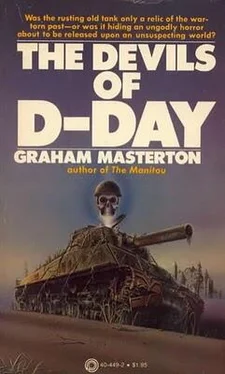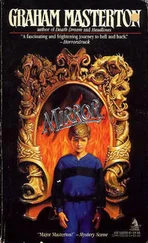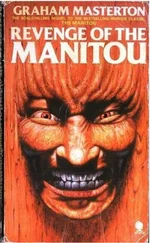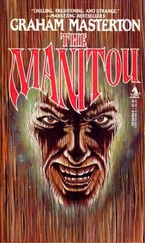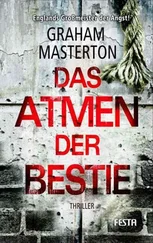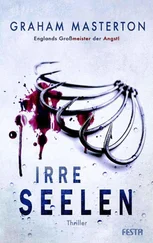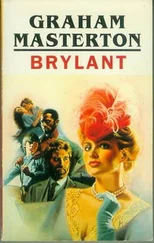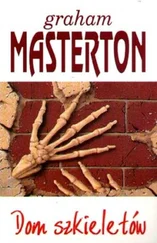After drinks and cakes, I drove Madeleine home through the streets of Pont D’Ouilly to her father’s farm. The snow had eased up, and now the Orne Valley was silent and cold and the hills surrounding the river were as white as furniture covered in dust-sheets. There was a pale moon rising, weaker than last night, and the snow-grey fields were patterned with the footprints of birds and stoats.
I stopped the car at the gate. Madeleine buttoned up her coat and said, “You won’t come in?”
“Maybe tomorrow. I promised Father Anton a game of chess. I think he’s deserved it.”
She nodded, and reached out for my hand. “I don’t know how to thank either of you. It’s like a great weight that’s been taken off my family’s shoulders.”
I rubbed my eyes. I was feeling the strain of what we had done this afternoon, both mentally and physically. My arms were aching from all that chiselling and hammering, and my mind was still a little tender from those claustrophobic moments inside the tank. I said, “Thank me tomorrow, when I can work out why the hell I wanted to do it in the first place.”
She smiled. “I thought Americans were just naturally helpful.”
“More like naturally nosey!”
She leaned across the car, which wasn’t difficult, because the 2CV’s so tiny that you’re sitting pressed together like canned frankfurters in any case. Her lips touched my cheek, and then we kissed, and I suddenly discovered that Norman farm girls have a really good flavour that almost makes demon-hunting worthwhile.
I said quietly, “I thought French people kissed each other on the cheeks.”
She looked at me closely, and said, “That’s only when they’re handing out medals.”
“Isn’t that what you’re doing now?”
She didn’t answer for a long time, but then she said: “ Peut-être, monsieur. Qui sait? ”
She opened her door and climbed out into the snow. She stayed where she was for a while, looking up and down the white and silent road, and then she leaned into the car and said, “Will I see you tomorrow?”
“Sure. Why don’t you come up to Father Anton’s sometime during the morning? I guess we have a lot of phoning to do. Calling up all those priests and getting rid of all those bones.”
Her breath smoked in the reflected light from the Citröen’s headlights. She said, “Sleep well, Dan. And, again—thank you.”
Then she shut the car door, and walked through the snow-topped gate-posts into her father’s farmyard. I watched her for a while, but she didn’t turn round, so I backed up the car and drove off towards Pont D’Ouilly, with only a quick sideways glance at the hulk of the Sherman tank which now rested in the hedge like the black discarded chrysalis of some monstrous insect.
The library, with its rows of leather books and its dismal portraits, was chillingly cold; so while we played chess after dinner, Father Anton allowed us the extravagance of two large elm logs on the fire, and we sat with glasses of Napoleon brandy beside the flickering flames, talking and playing slow, elaborate games until almost midnight.
“You play quite well,” observed Father Anton, after checkmating my king for the third straight time. “You’re out of practice, though, and you’re too impatient. Before you move, think—and then think again.”
“I’m trying to. I guess I have other things on my mind.”
“Like our demon? You mustn’t.”
“It’s kind of hard to forget.”
Father Anton took a pinch of snuff and poked it ceremoniously up his left nostril. “The devil thrives on fear, my friend. The more you fear him, the fiercer he becomes. You must think of what we have downstairs in the cellar as nothing more than a heap of stray bones, such as any hound might have buried in the cabbage-patch.”
“Well, I’ll try.”
Father Anton moved his pawn to rook six, and then sat back in his studded leather armchair. While I frowned at the chessboard and tried to work my way out of a situation that, on the face of it, looked like a fourth checkmate in three moves, he sipped his brandy ruminatively, and said, “Does it surprise you that demons actually lived? That they had flesh, and bones?”
I looked up. He was staring at the fire, and the flames reflected from his spectacles.
I said, “I don’t know. I suppose it does. I wouldn’t have believed it unless I’d seen it for myself.”
Father Anton shrugged. “It seems strange to me, you know, that in an age as pragmatic as ours, an age so bent on seeking evidence and demonstration, that the tangible manifestations of religion, like demons and devils, should be scoffed at.”
“Come on! Not many people have ever seen a demon.”
Father Anton turned his head and looked at me seriously. “Haven’t they? They’d be surprised. Demons and devils have evolved like the rest of us, and it’s remarkable how many of them still hide on the face of the earth.”
“Does the same go for angels?” I asked him. “I mean—do we have anyone on our side?”
Father Anton shook his head. “Angels never existed as actual creatures. The name ‘angel’ describes a state of divine energy that is terrible in the classic sense of the word. I know that angels are the messengers of God; and that they often protect us from harm and from the temptations of Satan. But I know enough about them to say that, in this life, I would prefer not to meet one. They are fearsome to say the least.”
“Can they be summoned, like demons?”
“Not in the same way. But if you’re interested, I have a book on my shelves on the invocation of angels. It was a great favourite of the Reverend Taylor when he was here during the war, surprisingly. Perhaps his involvement with your country’s demons alarmed him sufficiently to seek some assistance from the cohorts of God.”
We fell silent for a few minutes while I made my next move on the board. Outside the tall windows, the snow began to fall again, thick and silent, piling softly on to northern France until it looked like the moon. An easterly wind was blowing across Poland and Germany and Belgium, bringing low clouds and an endless winter of grey cold.
Father Anton inspected the chessboard. “ Ce n’est pas mal, ça, ” he said, nodding his head in approval. But then his bony, liver-spotted hand moved his queen across towards my king, and he said: “ Malheureusement, c’est o’ léche et le mat. ”
With one move, he had stymied my king; and all I could do was lift my hands in surrender. “I guess I had to learn the hard way. Never play chess with nonagenarians.”
He smiled. “We must play some more, if you’re staying in the Suisse Normande. You’re a worthy opponent.”
“Thanks,” I said, lighting a cigarette. “But I’m afraid that baseball’s more my style.”
We finished our brandy as the carved mahogany clock on the mantelpiece struck twelve. The logs in the grate sparked and dropped, and all around us was the silence of a dark clerical mansion in the heart of a small wintry village in the shouldering hills of Normandy. Father Anton spoke. “This is a brave thing you have done today. You must realize that. I know that Madeleine is appreciative, but I am, too. I’m very sad that, for all these years, there hasn’t been a man among us with sufficient courage to do what you did, and open the tank up.”
“You know what they say,” I told him. “Ignorance is bliss. If I’d known as much as you do about devils and demons, I probably wouldn’t have gone near it.”
“Nonetheless, monsieur, I am grateful. And I want you to wear this tonight, my crucifix, as a protection.”
He lifted the large silver cross from around his neck and passed it over. It was weighty, and embossed with the figure of Christ. I held it in my hand for a moment, and then I offered it back to him. “I can’t wear this. This is yours. You need protection as much as I do.”
Читать дальше
